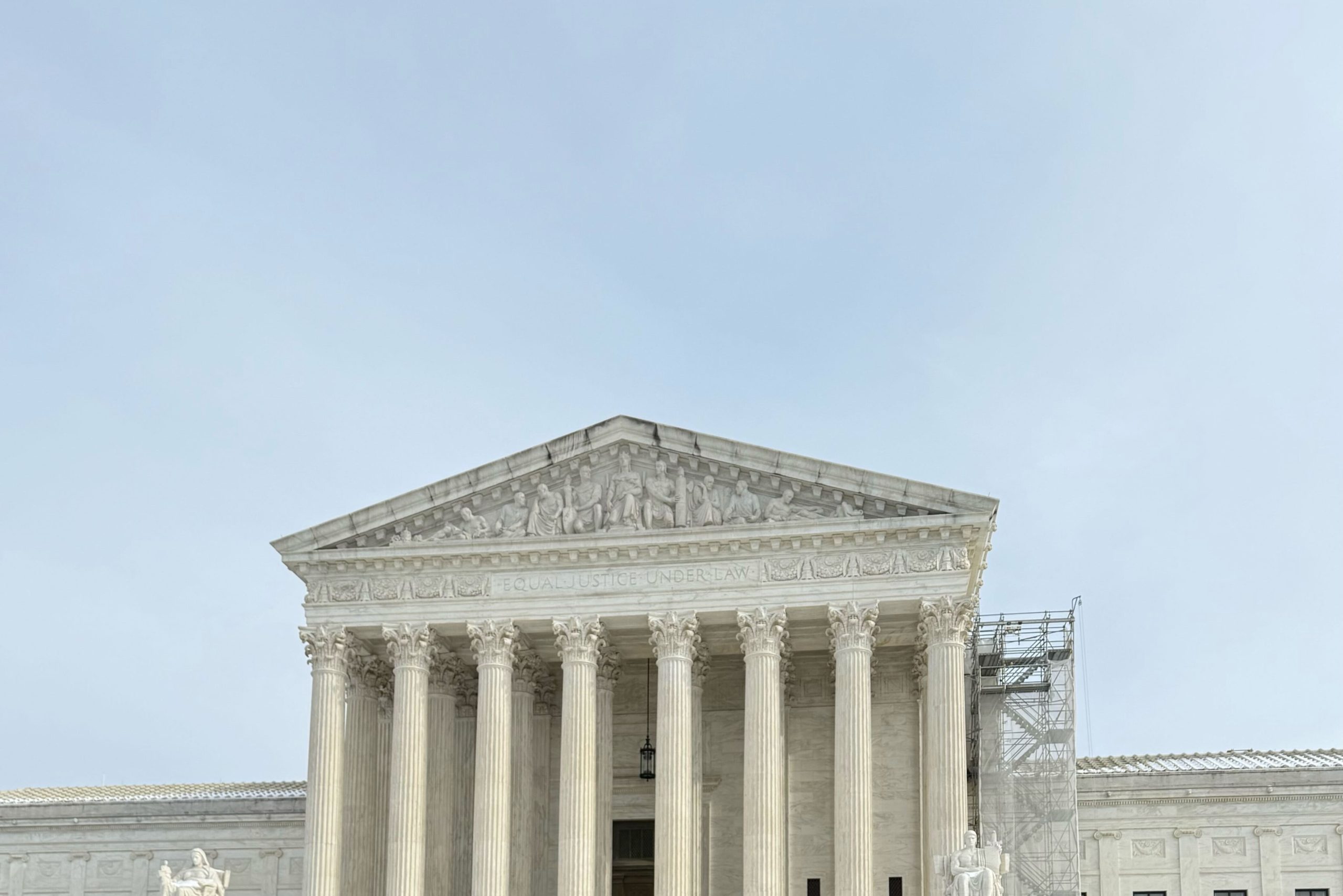Trump asks Supreme Court to block order to return wrongly deported man to U.S.


This article was updated on April 7 at 4:04 p.m.
The Trump administration came to the Supreme Court on Monday morning, asking the justices to block an order by a federal judge in Maryland that instructed the federal government to return a Maryland man erroneously deported to El Salvador, where he is being held in a maximum-security mega-prison, to the United States by Monday evening.
Shortly before 4 p.m. on Monday, Chief Justice John Roberts granted the government’s request for an administrative stay, and he instructed Kilmar Armando Abrego Garcia’s lawyers to file their response by 5 p.m. on Tuesday. However, just a few minutes after the court’s Public Information Office released the Roberts order to reporters, it also distributed Abrego Garcia’s response, which had just been submitted.
The U.S. Court of Appeals for the 4th Circuit denied the Department of Justices request to block the order on Monday morning. In a concurring opinion joined by Judge Robert King, Judge Stephanie Thacker wrote that the federal government has no legal authority to snatch a person who is lawfully present in the United States off the street and remove him from the country without due process.”
John Sauer, who was confirmed as the U.S. solicitor general last week, told the justices that U.S. District Judge Paula Xinis had ordered unprecedented relief: dictating to the United States that it must not only negotiate with a foreign country to return an enemy alien on foreign soil, but also succeed by 11:59 p.m. tonight. Sauer also asked the court to grant an administrative stay, which would freeze Xiniss order long enough to give the justices time to consider his request.
Abrego Garcia was born in El Salvador and came to this country as an undocumented immigrant. In 2019, an immigration judge granted him withholding of removal, which means that he is protected against being removed to El Salvador because of the likelihood that he would be harmed if returned there. He has never been charged with or convicted of a crime.
On March 12, Abrego Garcia was taken into ICE custody and eventually moved to Texas and, from there, to El Salvadors notorious Terrorism Confinement Center. The detainees who arrived there from the U.S. were stripped, shackled, and had their heads shaved. No one has heard from Abrego Garcia since he arrived in El Salvador.
Lawyers representing Abrego Garcia went to federal court in Maryland, where Abrego Garcia lived with his wife and three children, seeking his return to the United States. The federal government acknowledged that Abrego Garcia should not have been taken to El Salvador, but it countered that Xinis lacked the power to consider Abrego Garcias case because (among other things) he was now in El Salvador and because the U.S government lacks any ability to get him back.
In a brief ruling on Friday, followed by a longer written decision on Sunday, Xinis instructed the federal government to return Abrego Garcia by 11:59 p.m. on Monday. The government, she stressed, had no legal authority to arrest him, no justification to detain him, and no grounds to send him to El Salvadorlet alone deliver him into one of the most dangerous prisons in the Western Hemisphere.
Xinis declined to put her ruling on hold to give the government time to appeal, and the U.S. Court of Appeals for the 4th Circuit (in an order that appeared on the docket after the Trump administration submitted its filing to the Supreme Corut) did the same.
In his 25-page filing, Sauer contended that [e]ven amidst a deluge of unlawful injunctions apparently referring to other court orders blocking Trump administration policies this order is remarkable because even Abrego Garcia had not asked the federal courts to force the United States to persuade El Salvador to release him on a judicially mandated clock. The federal government, Sauer maintained, cannot guarantee success in sensitive international negotiations in advance, least of all when a court imposes an absurdly compressed, mandatory deadline that vastly complicates the give-and-take of foreign-relations negotiations.
Sauer also repeated the governments contention that Abrego Garcia was a member of the international criminal gang Mara Salvatrucha, commonly known as MS-13, which the United States has designated as a terrorist organization. Abrego Garcia disputes this, and in her written order Xinis noted that the evidence against Abrego Garcia consisted of nothing more than his Chicago Bulls hat and hoodie, and a vague, uncorroborated allegation from a confidential informant claiming he belonged to MS-13s Western clique in New Yorka place he has never lived.
Sauer conceded that Abrego Garcias removal to El Salvador was an administrative error. But that, he continued, does not give district courts the authority to seize control over foreign relations, treat the Executive Branch as a subordinate diplomat, and demand that the United States let a member of a foreign terrorist organization into America tonight.
This article was originally published at Howe on the Court.
Posted in Emergency appeals and applications
Cases: Noem v. Abrego Garcia
